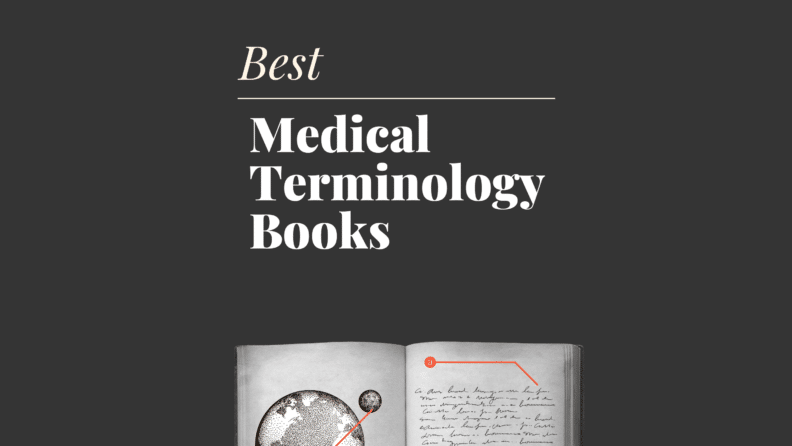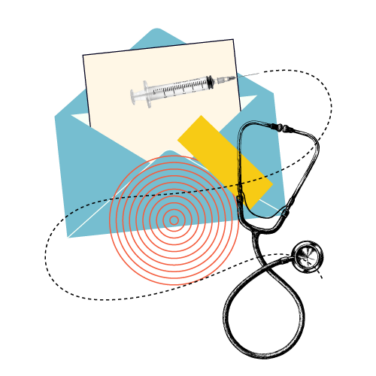As a medical practice owner, I've found that the right medical terminology books are essential for anyone entering the healthcare field or looking to refresh their knowledge. My curated list offers comprehensive yet clear resources, perfect for students, professionals, or anyone preparing for medical school or a terminology course.
For anyone looking to deepen their knowledge in natural health, here are some holistic medicine books you should read.
17 Best Medical Terminology Books
I've read and handpicked these medical terminology books to bridge the knowledge gap you're seeking to fill.
- Medical Terminology For Dummies by Beverley Henderson and Jennifer L. Dorsey
- Medical Terminology: A Living Language by Bonnie F. Fremgen
- Quick & Easy Medical Terminology by Peggy C. Leonard
- Medical Terminology: A Short Course by Davi-Ellen Chabner
- Medical Terminology Systems by Barbara A. Gylys and Mary Ellen Wedding
- The Language of Medicine by Davi-Ellen Chabner
- Short Course in Medical Terminology by Judi L. Nath
- Medical Terminology Made Incredibly Easy! by Lippincott Williams & Wilkins
- Stedman's Medical Terminology by Judi L. Nath
- Student Workbook for Jones' Comprehensive Medical Terminology by Betty Davis Jones
- Medical Terminology: An Illustrated Guide by Barbara Janson Cohen
- Mosby's Medical Dictionary by Mosby
- Step-by-Step Medical Coding by Carol J. Buck
- Introduction to Medical Terminology by Ann Ehrlich and Carol L. Schroeder
- Medical Terminology & Anatomy for Coding by Betsy J. Shiland
- Medical Terminology: The Best and Most Effective Way to Memorize, Pronounce and Understand Medical Terms by David Andersson, M. Mastenbjörk M.D., and S. Meloni M.D.
- Taber's Cyclopedic Medical Dictionary by Donald Venes
Overviews Of The 17 Best Medical Terminology Books
Here’s a quick summary of each book, what you’ll learn, and why you should read it, plus a quote I like from the book. I added the author’s LinkedIn and other places to connect with them online.
1. Medical Terminology For Dummies by Beverley Henderson and Jennifer L. Dorsey
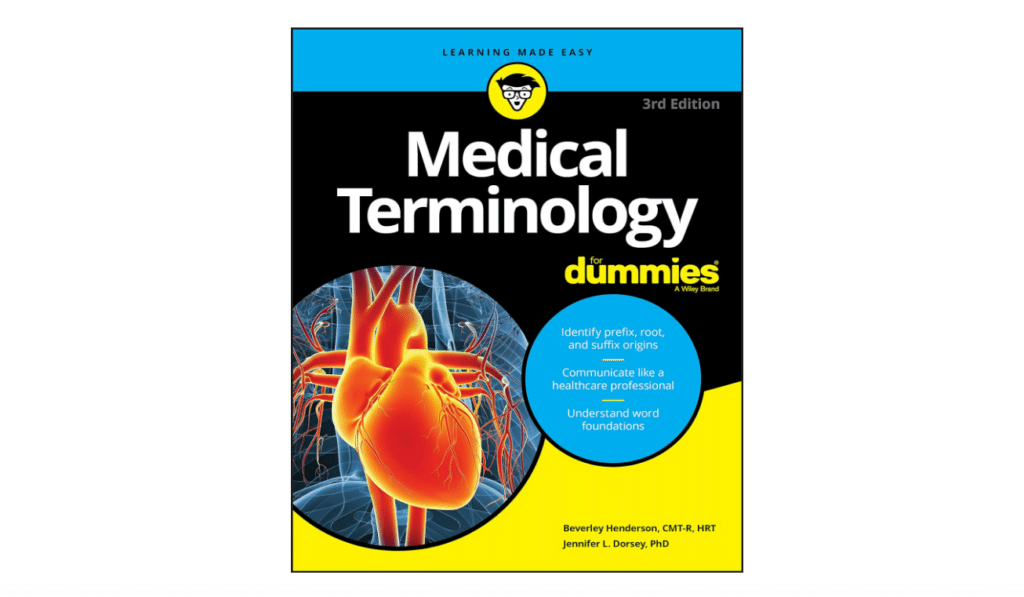
Summary:
This accessible guide demystifies the complex language of medicine, providing readers with a strong foundation of medical terminology.
What You'll Learn:
Basics of medical terminology, understanding words related to body systems, decoding medical terms, and practical knowledge for real-world applications in medical careers.
Why You Should Read It:
This book breaks down complex medical jargon, making it easier for beginners to grasp essential terms and use them accurately in professional settings.
Quote From The Book:
"Understanding medical terminology is an important skill for anyone working in the health care field."
About The Author:
Beverley Henderson and Jennifer L. Dorsey are renowned for their contributions to medical writing.
2. Medical Terminology: A Living Language by Bonnie F. Fremgen
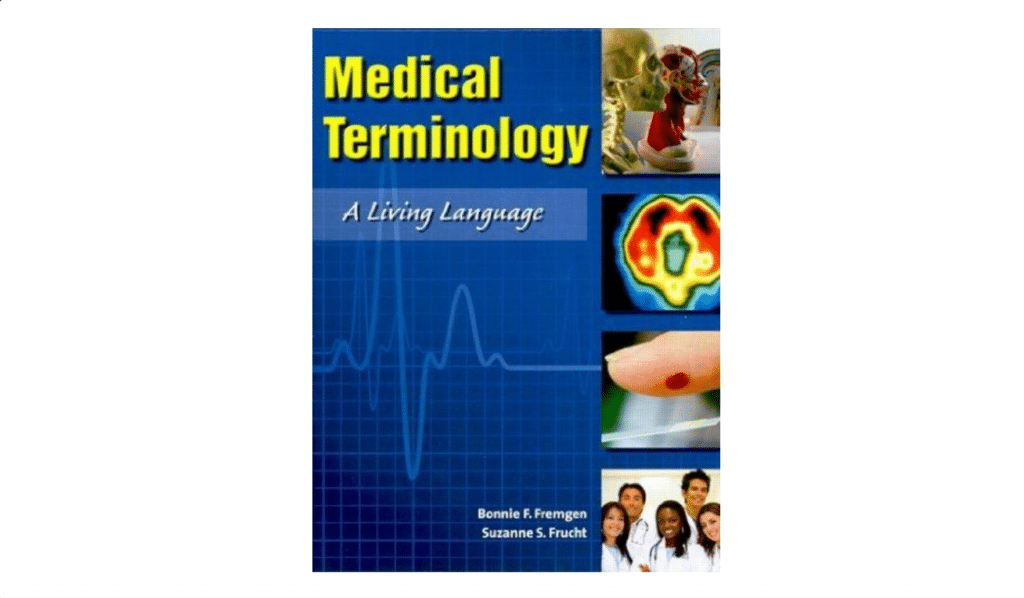
Summary:
With a unique modular and visual approach, this book introduces readers to the language of medicine and healthcare-related careers.
What You'll Learn:
Comprehensive overviews of body systems, techniques to build, analyze, and define medical terms, and rich visual aids to help remember complex terms.
Why You Should Read It:
Its immersive modular approach makes learning an extensive list of medical terminologies less daunting and more engaging, promoting long-term retention.
Quote From The Book:
"Every profession has its unique language, but medical terminology is a language where precision is imperative."
About The Author:
Bonnie F. Fremgen is an expert in medical terminology and healthcare education. Dive deeper into her accomplishments on her Amazon profile.
3. Quick & Easy Medical Terminology by Peggy C. Leonard
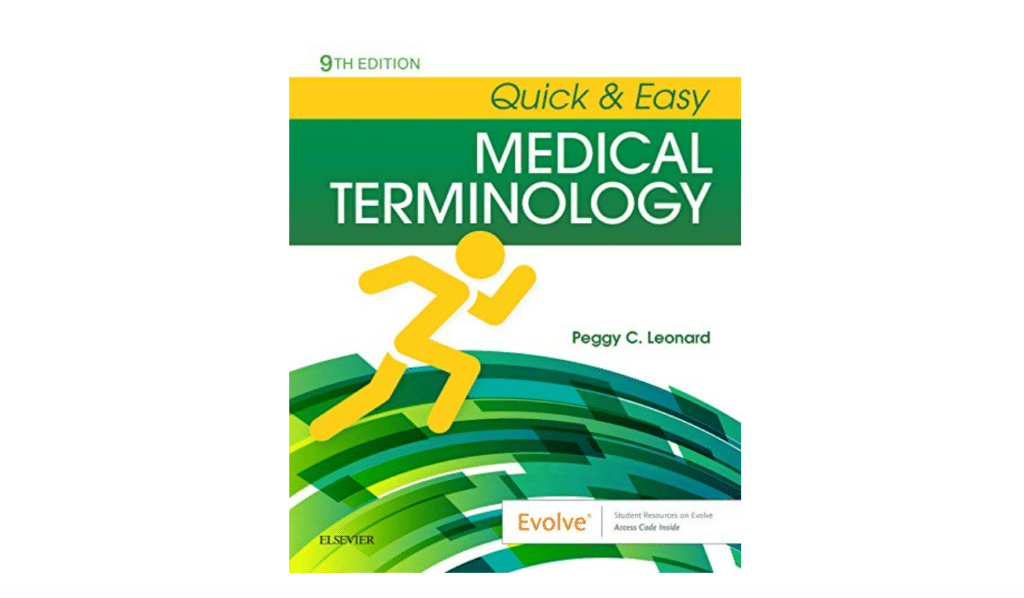
Summary:
Peggy C. Leonard's book simplifies the process of learning medical vocabulary by incorporating a straightforward and interactive approach.
What You'll Learn:
Strategies for quickly understanding and memorizing medical terms, the use of root words, suffixes, prefixes, and combining forms, and exercises and online resources for interactive learning.
Why You Should Read It:
This book stands out for its interactive content and online resources, helping students and professionals alike quickly and efficiently master areas they find challenging.
Quote From The Book:
"Mastering medical terminology requires practice, and this book gives you plenty of opportunities for that!"
About The Author:
Peggy C. Leonard is celebrated for her approachable writing in medical education. Explore more about her works on her Amazon Portfolio.
4. Medical Terminology: A Short Course by Davi-Ellen Chabner
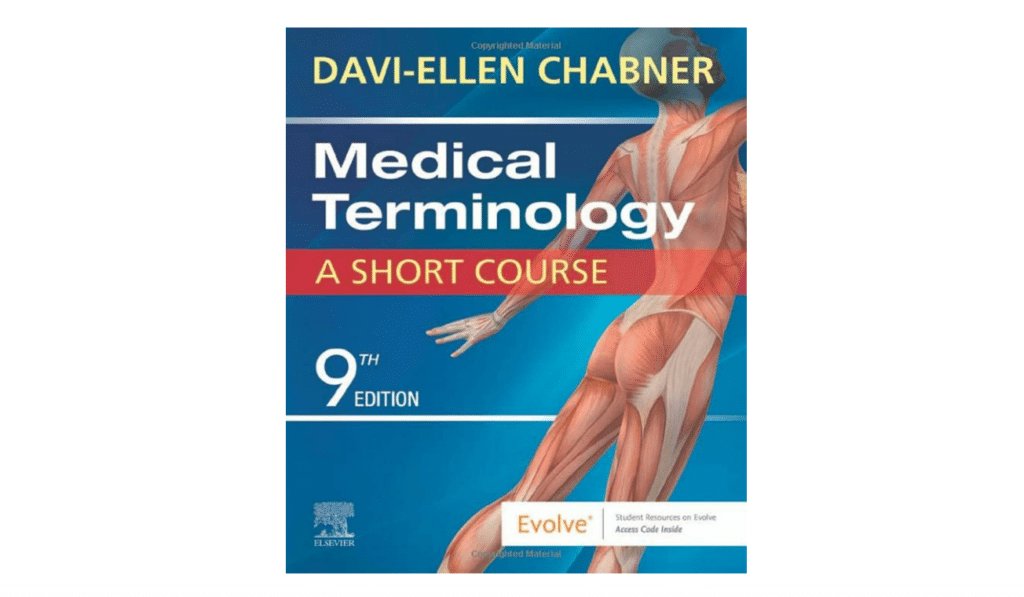
Summary:
Medical Terminology: A Short Course simplifies the language of medicine, providing an easy-to-follow guide to understanding word parts and medical terms in context.
What You'll Learn:
Gain insights into breaking down complex medical terms, recognizing root words, prefixes, and suffixes, and building a robust medical vocabulary to navigate healthcare settings confidently.
Why You Should Read It:
Chabner employs real-life scenarios and accessible language, making the acquisition of medical terminology less daunting and more relatable.
Quote From The Book:
"Once you understand the logic behind how medical terms are formed, they become as easy to understand as everyday language."
About The Author:
Davi-Ellen Chabner is notable for her expertise in medical language comprehension. Engage with her professional insights on LinkedIn.
5. Medical Terminology Systems by Barbara A. Gylys and Mary Ellen Wedding
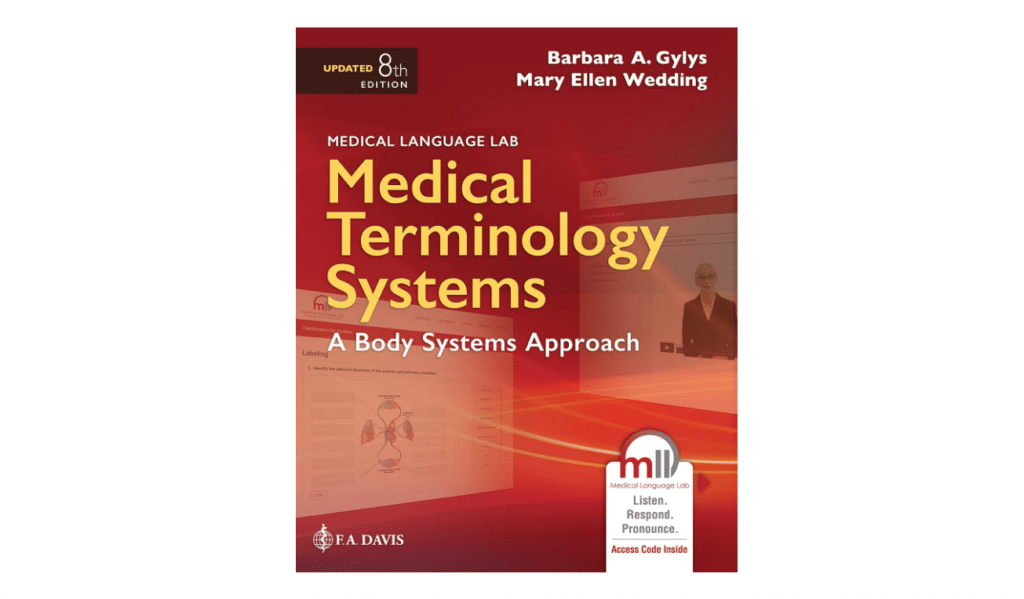
Summary:
This book unravels medical terminology related to body systems in an extensive yet digestible manner, making it an ideal companion for both novices and seasoned healthcare professionals.
What You'll Learn:
Learn intricate details of anatomical and physiological terminology for various body systems, enabling precise communication in diagnostics, treatment, and medical procedures.
Why You Should Read It:
The structured layout allows readers to understand the logic behind medical terms, fostering deeper and more lasting knowledge retention.
Quote From The Book:
"Proper medical terminology is not just a language to be memorized; it is a structured system to be understood."
About The Author:
Experts Barbara A. Gylys and Mary Ellen Wedding have made significant contributions to medical education.
6. The Language of Medicine by Davi-Ellen Chabner
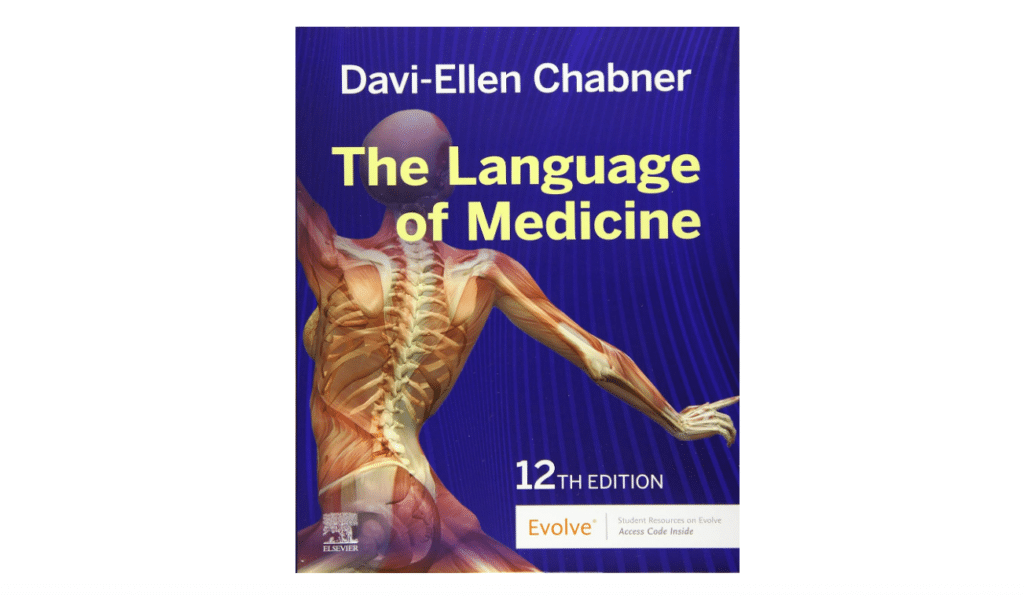
Summary:
The Language of Medicine offers a comprehensive guide to mastering medical vocabulary, designed for a broad audience ranging from medical students to practicing professionals.
What You'll Learn:
The book emphasizes the foundational elements of medical terms, their application, and the context in various medical specialties, ensuring a well-rounded comprehension.
Why You Should Read It:
With its incorporation of real-world medical cases and interactive exercises, the book promises an engaging and informative experience that extends beyond rote memorization.
Quote From The Book:
"Medicine has a language of its own. Mastering it not only enhances your knowledge but also your ability to provide quality care."
About The Author:
Davi-Ellen Chabner's distinguished career highlights her as a key figure in medical education. Connect with her professional journey on LinkedIn.
7. Short Course in Medical Terminology by Judi L. Nath
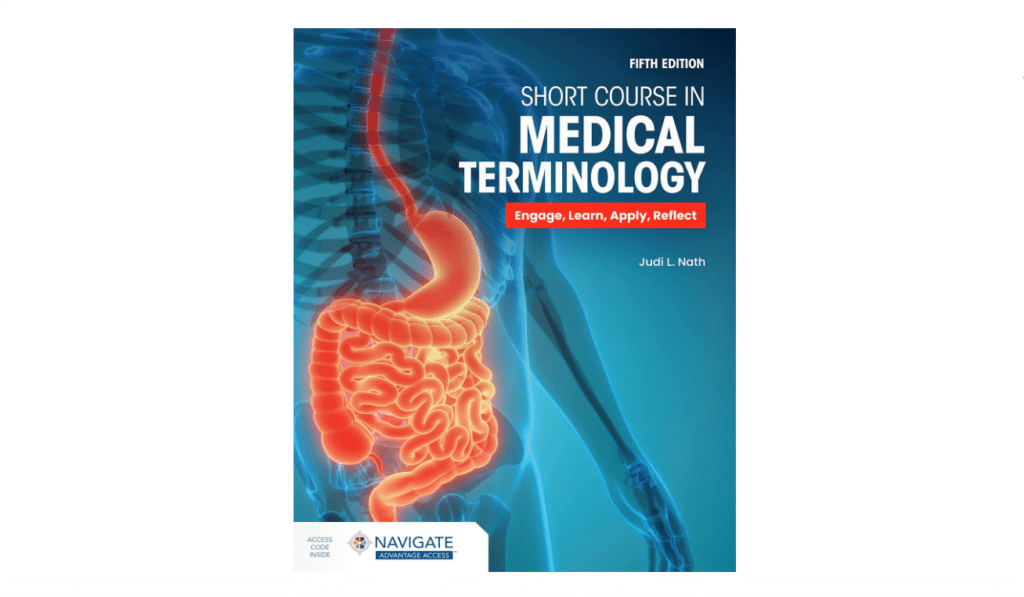
Summary:
Nath’s Short Course in Medical Terminology is a condensed exploration of medical language, showcasing the essentials of medical terms in a clear, accessible format.
What You'll Learn:
This book assists readers in rapidly acquiring a fundamental grasp of medical terminology, focusing on root words, the basics of formation, and term application across various medical environments.
Why You Should Read It:
Nath presents a streamlined, efficient approach to learning, making it suitable for quick reference or a foundational guide, especially for those pressed for time or in the early stages of their medical careers.
Quote From The Book:
"Grasping medical terminology is the cornerstone of effective communication in the healthcare environment."
About The Author:
Judi L. Nath is a writer and educator in the field of medical terminology. Her professional insights and educational contributions can be further explored through her LinkedIn, Twitter, and personal website.
8. Medical Terminology Made Incredibly Easy! by Lippincott Williams & Wilkins
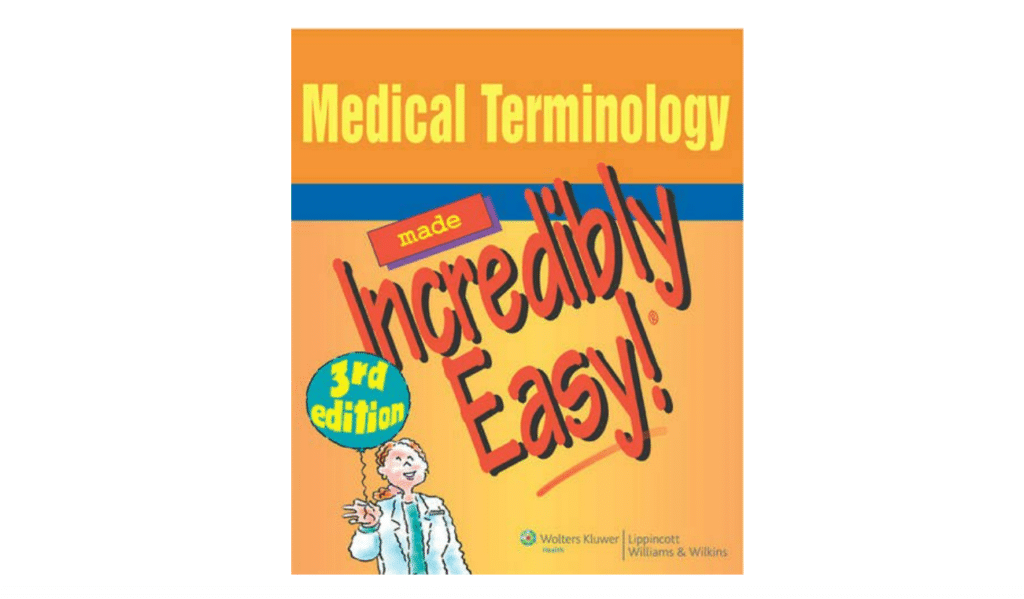
Summary:
Medical Terminology Made Incredibly Easy! stands true to its title, demystifying complex medical jargon for readers at all levels, from students to healthcare professionals.
What You'll Learn:
The book elucidates the formation of medical terms, including prefixes, suffixes, and root words, allowing readers to construct and deconstruct terms to grasp their meanings fully.
Why You Should Read It:
Its unique, light-hearted approach makes learning enjoyable, employing humor and clever mnemonics to aid memory retention, a refreshing alternative to traditional medical textbooks.
Quote From The Book:
"Understanding each medical term as a whole takes the 'complex' out of the language used in healthcare."
About The Author:
Lippincott Williams & Wilkins is a premier publisher of medical information. You can explore more about their publications and resources through their official website and Twitter page.
9. Stedman's Medical Terminology by Judi L. Nath
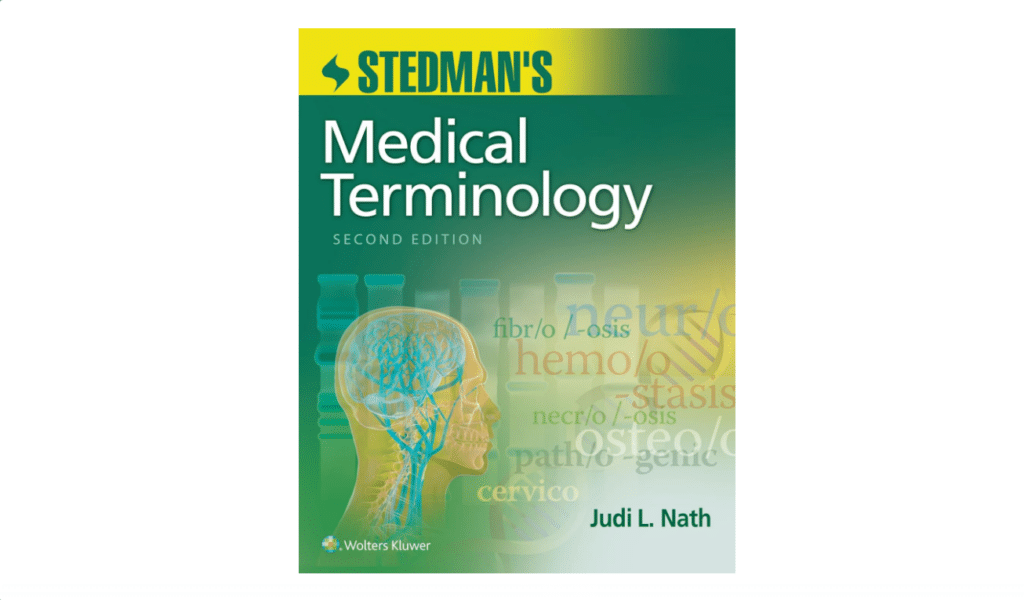
Summary:
Stedman's Medical Terminology offers readers an immersive dive into professional healthcare language, using a systematic approach enriched with a wide array of learning tools.
What You'll Learn:
The book imparts detailed knowledge of terminology used in diagnosis, pathology, procedures, and pharmacology, preparing readers for real-world application in healthcare settings.
Why You Should Read It:
The comprehensive content, combined with innovative multimedia resources, enhances interactive learning, making it an indispensable resource for thorough and effective medical language acquisition.
Quote From The Book:
"Effective communication in healthcare starts with clarity of language, understanding each term down to its roots."
About The Author:
Judi L. Nath is an esteemed figure in medical education, specializing in simplifying complex concepts for learners. Follow her work and insights on her LinkedIn, and Twitter, and explore her body of work on her personal website.
10. Student Workbook for Jones' Comprehensive Medical Terminology by Betty Davis Jones
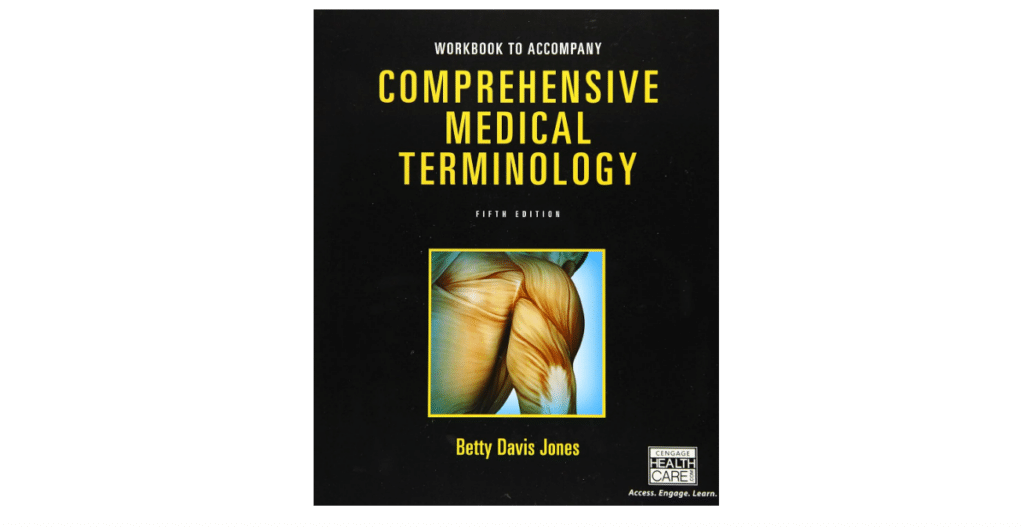
Summary:
This workbook is an essential companion to the original textbook, enhancing learning through practical exercises and engaging activities directly related to medical terminology.
What You'll Learn:
Readers will reinforce their understanding of medical terms, abbreviations, and patient records through fill-in-the-blank, matching, and true/false questions, ensuring a hands-on approach to learning.
Why You Should Read It:
Perfect for self-assessment and revision, this workbook's diverse range of exercises ensures that learners can test their knowledge and identify areas needing more attention.
Quote From The Book:
"Applying what you've learned in practical scenarios is crucial in cementing medical terminology in your memory."
About The Author:
Betty Davis Jones is renowned for her contributions to medical education. Discover more about her works on Amazon.
11. Medical Terminology: An Illustrated Guide by Barbara Janson Cohen
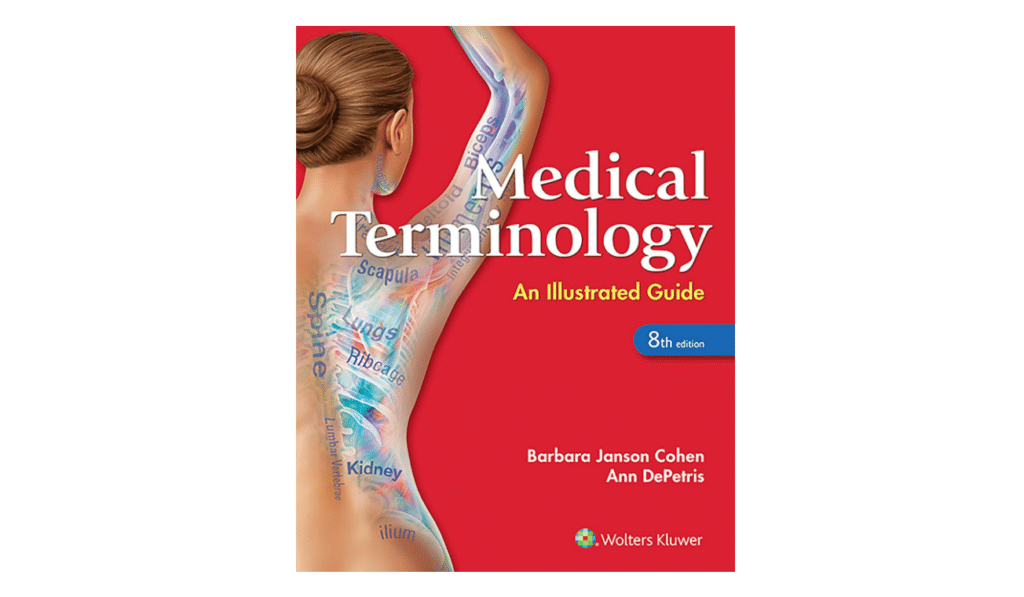
Summary:
Cohen's guide takes a visual approach to learning medical terminology, incorporating rich illustrations and diagrams to aid comprehension and retention of complex concepts.
What You'll Learn:
This guide helps learners visualize the meanings behind intricate medical terms and understand the human body's complex systems, contributing to more effective and empathetic patient care.
Why You Should Read It:
The integration of visual aids with text makes this guide particularly accessible to visual learners and those new to medical terminology, providing context that plain text alone cannot offer.
Quote From The Book:
"Seeing the human body and the terms that describe it in picture form bridges the gap between abstract terminology and tangible reality."
About The Author:
Barbara Janson Cohen is an esteemed author and educator. Discover more about her impactful works on Amazon.
12. Mosby's Medical Dictionary by Mosby
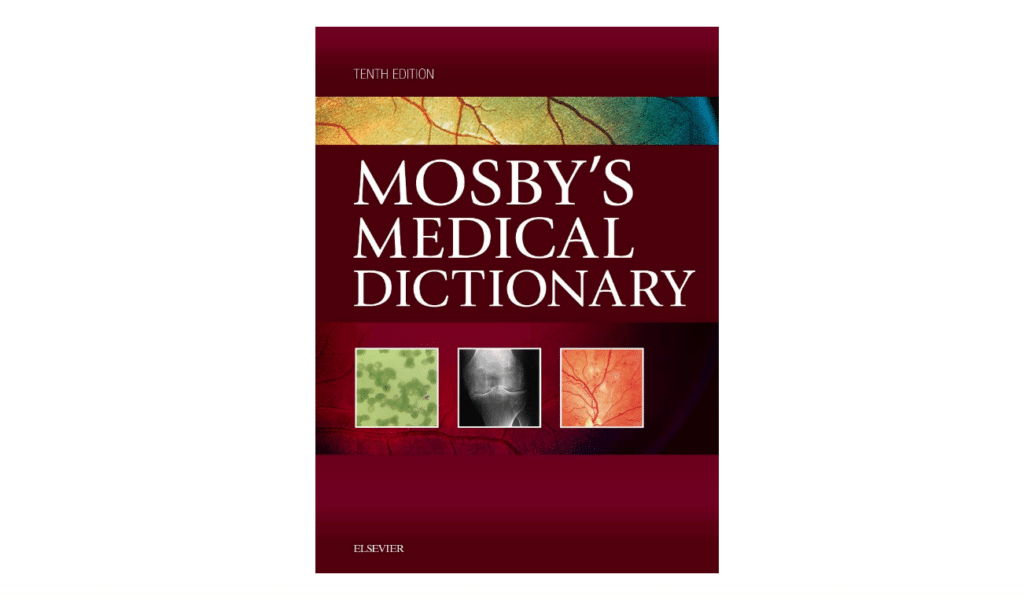
Summary:
Mosby's dictionary is not just a resource but an essential reference that defines complex medical terms and concepts, designed to support healthcare professionals at all levels.
What You'll Learn:
Readers gain access to clear, concise definitions and descriptions of medical conditions, procedures, and treatments, enhancing their professional language and patient communication skills.
Why You Should Read It:
This comprehensive dictionary is an invaluable tool for quick reference, ensuring clarity and accuracy in the fast-paced healthcare environment.
Quote From The Book:
"A precise understanding of medical terminology leads to more accurate diagnoses, clearer communication, and improved patient outcomes."
About The Author:
Mosby is a leading publisher in health science communications. Stay updated with new releases and professional resources on their official website and Twitter account.
13. Step-by-Step Medical Coding by Carol J. Buck
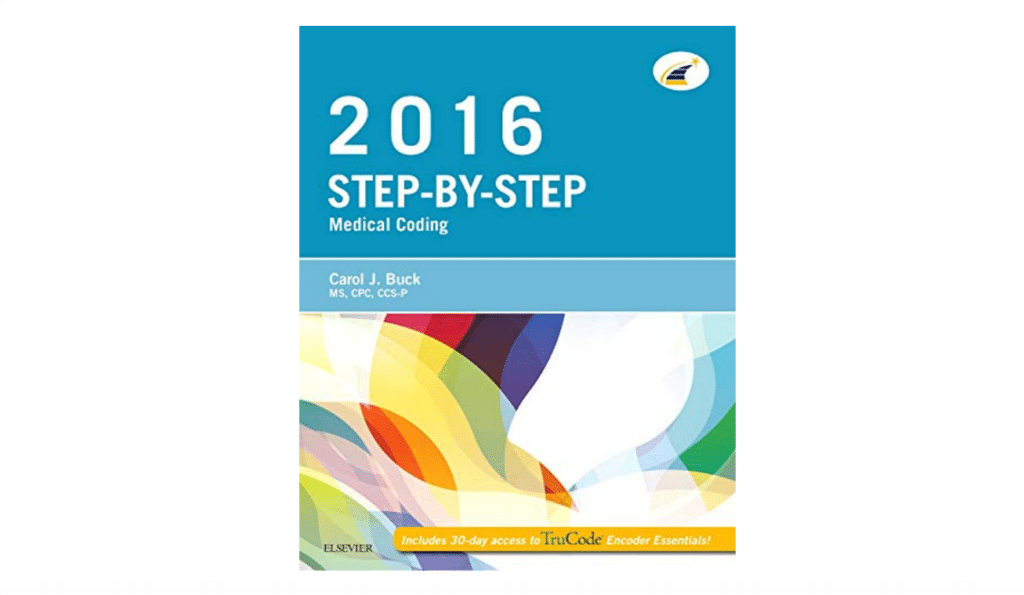
Summary:
Step-by-Step Medical Coding is a robust resource that demystifies the world of medical coding, providing clear, step-by-step instructions and practical, real-world examples.
What You'll Learn:
You will delve into the specifics of medical coding, including coding rules, procedures, and the nuances that impact healthcare practices. This knowledge is vital for correct billing and documentation.
Why You Should Read It:
Carol J. Buck uses her expertise to make medical coding accessible, ensuring professionals can navigate complex scenarios with confidence. It's a must-have for those in medical billing and coding professions.
Quote From The Book:
"Accuracy in coding sets the foundation for effective, reliable, and transparent healthcare services."
About The Author:
Carol J. Buck has a profound impact on medical coding education. You can learn more about her works on her Amazon portfolio.
14. Introduction to Medical Terminology by Ann Ehrlich and Carol L. Schroeder
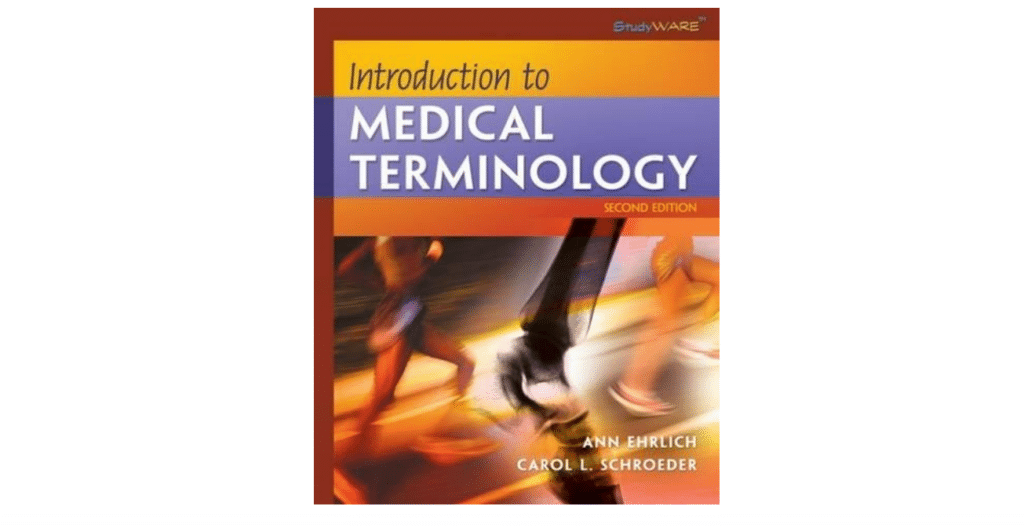
Summary:
This book serves as a comprehensive guide, introducing readers to the language of medicine and healthcare, with an emphasis on the terminology used in practice and clinical settings.
What You'll Learn:
Readers will understand the structure of medical terms, including prefixes, suffixes, and root words, equipping them with the ability to decipher and utilize the language effectively.
Why You Should Read It:
Ehrlich and Schroeder's book is foundational for newcomers, breaking down complex language barriers in healthcare, which enhances communication and leads to better patient care.
Quote From The Book:
"Mastering medical terminology is the first step towards a deeper understanding of healthcare's language and the nuanced communication it entails."
About The Author:
Ann Ehrlich and Carol L. Schroeder are pioneers in medical terminology education. Explore more about Ann’s works on Amazon, and follow Carol’s professional journey on LinkedIn.
15. Medical Terminology & Anatomy for Coding by Betsy J. Shiland
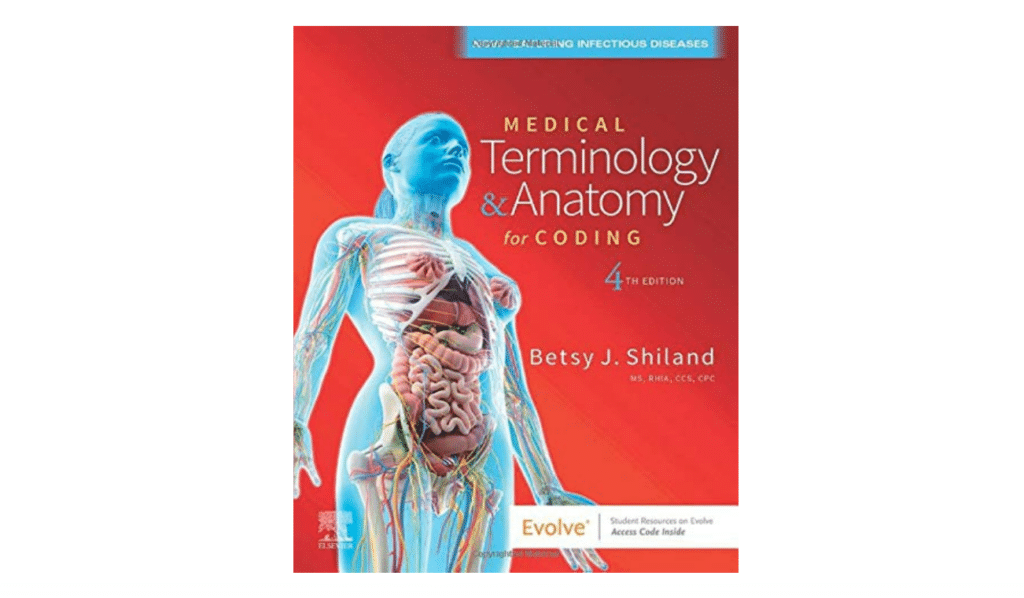
Summary:
Shiland's unique book integrates medical terminology and anatomy with coding principles, essential for individuals working on the administrative side of healthcare.
What You'll Learn:
This comprehensive guide will help you understand how coding corresponds with human anatomy, medical terms, and the healthcare system, providing a holistic view that is often missing in traditional resources.
Why You Should Read It:
It bridges various healthcare aspects, making it invaluable for coding professionals seeking a thorough understanding of medical terminology and anatomy relevant to their field.
Quote From The Book:
"Integrating knowledge of anatomy with medical terminology is key to a comprehensive understanding of the nuances in medical coding."
About The Author:
Betsy J. Shiland is known for her integrated approach to healthcare education. Delve deeper into her works on her Amazon portfolio.
16. Medical Terminology: The Best and Most Effective Way to Memorize, Pronounce and Understand Medical Terms by David Andersson, M. Mastenbjörk M.D., and S. Meloni M.D.
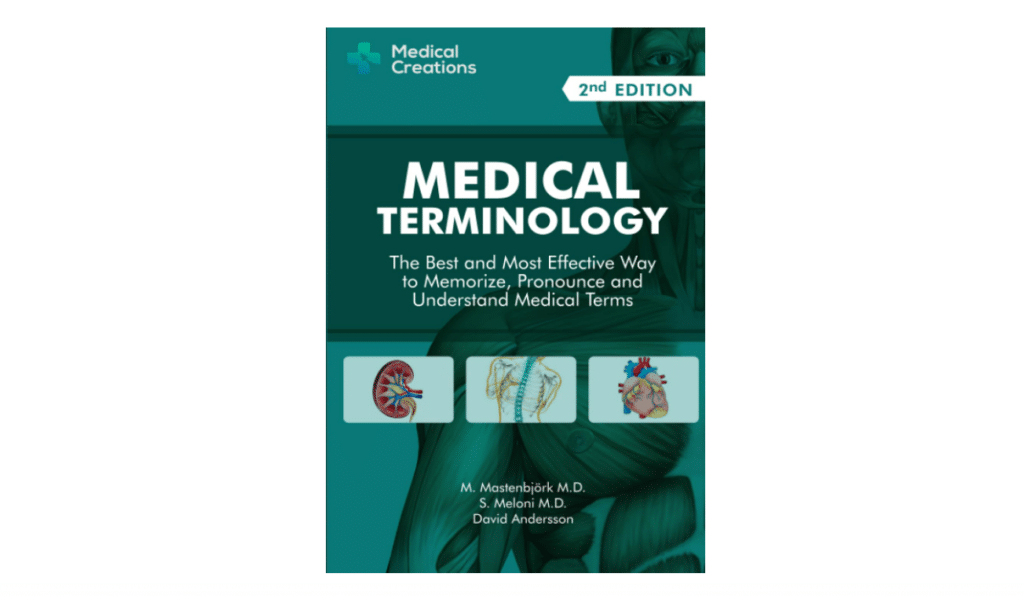
Summary:
This innovative book is a powerhouse resource that unveils techniques and strategies to grasp medical terminology efficiently. It's tailored to help students, educators, and healthcare professionals.
What You'll Learn:
You'll explore effective memorization techniques, pronunciation guides, and fundamental concepts behind medical terms, ensuring a robust understanding rather than rote memorization.
Why You Should Read It:
Andersson, Mastenbjörk, and Meloni have collaboratively pinpointed a challenge in healthcare education and addressed it with this guide, essential for anyone who has struggled with the complexity of medical vocabulary.
Quote From The Book:
"Comprehending medical terminology is akin to learning a new language - it requires immersion, practice, and the ability to understand the roots of the words."
About The Author:
David Andersson and co-authors M. Mastenbjörk M.D., and S. Meloni M.D., bring a wealth of experience and research in medical education. Delve deeper into David Andersson’s works on Amazon, engage with M. Mastenbjörk’s professional insights on LinkedIn, and explore S. Meloni's broader works and contributions on her LinkedIn profile.
17. Taber's Cyclopedic Medical Dictionary by Donald Venes
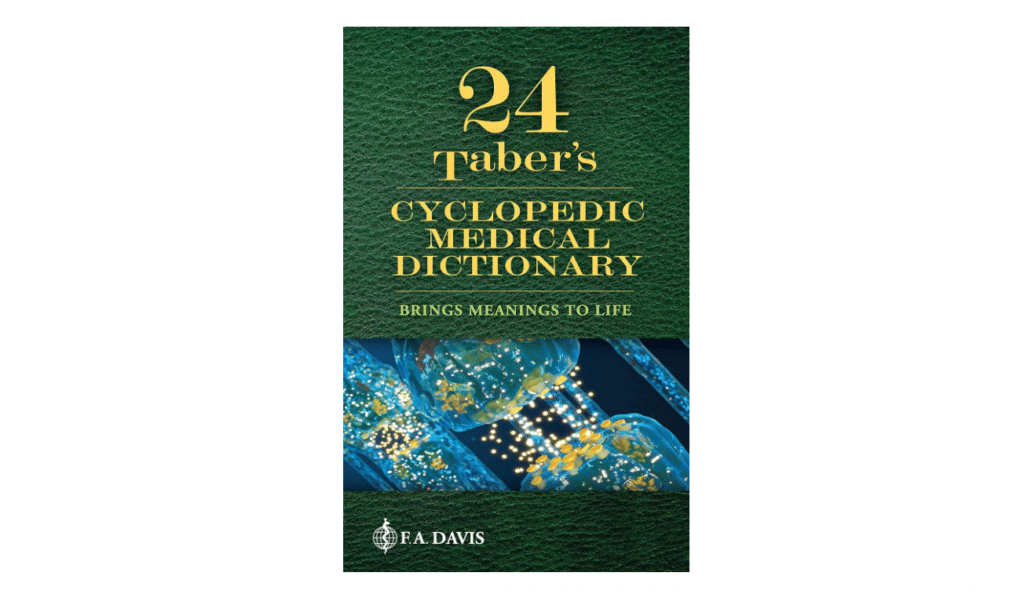
Summary:
Taber's Cyclopedic Medical Dictionary is an encyclopedic guide offering unparalleled coverage of health science and medical terminology. It’s a cornerstone resource for professionals and students alike.
What You'll Learn:
Beyond standard definitions, readers will uncover detailed explanations of terms, often accompanied by high-quality illustrations, tables, and diagrams to enrich understanding.
Why You Should Read It:
Under Donald Venes' editorship, "Taber's" is more than a dictionary; it's an educational tome in the world of medical language, known for its accuracy and comprehensive content, making it an indispensable reference.
Quote From The Book:
"In the evolving field of healthcare, a comprehensive, reliable, and clear medical dictionary is a beacon of knowledge."
About The Author:
Donald Venes, a key figure in medical publishing, brings depth and dedication to healthcare education.
Which Medical Terminology Books Do You Recommend?
Your journey through the world of medical terminology books doesn't have to stop here. If you've encountered a transformative title not featured in this list, please share it. Your recommendations are invaluable in enriching this resource for learners and professionals alike.
To stay updated on the latest trends, best practices, and solutions related to your medical practice, subscribe to The Medical Practice newsletter.


